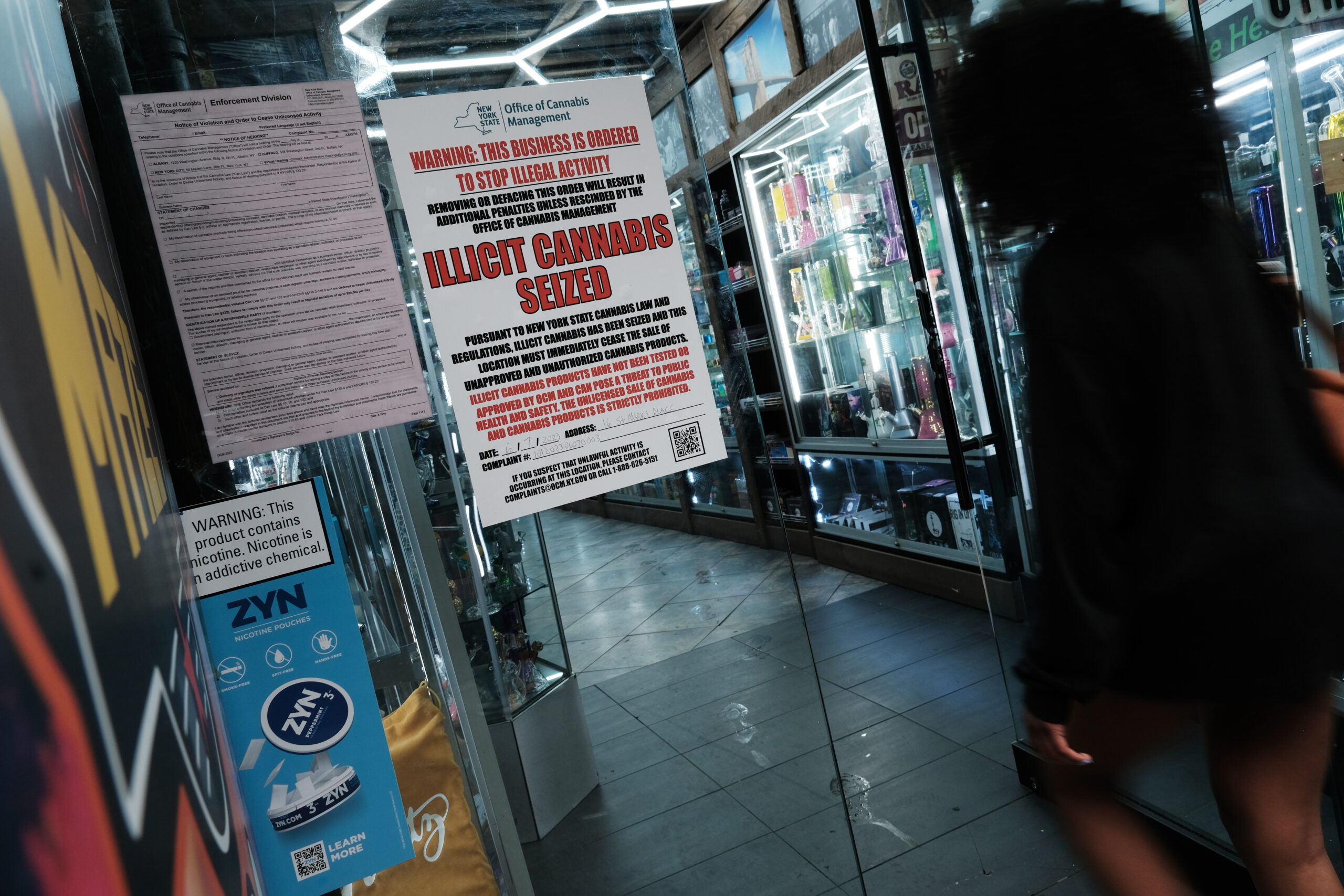Building owners who rent to stores that sell illegal and unlicensed marijuana and tobacco products can face fines of up to $1,000 per day.
The new measure, announced this week, is part of the municipal administration’s efforts to combat the proliferation of businesses that illegally sell tobacco, vaporizers and cannabis products throughout the city and, at the same time, protect health and safety. well-being of consumers and New Yorkers.
The New York City Sheriff’s Office Joint Enforcement Task Force has sent letters to the owners of 50 buildings in all five boroughs warning that they could be held legally responsible for the continued unlicensed sale of cannabis or tobacco products by part of its tenants. In these 50 locations alone, the task force has already imposed more than $7 million in penalties and illegal products with an estimated cost of $3.9 million have been seized.
Mayor Eric Adams said his administration is using every tool available to protect young people and all New Yorkers from dangerous and illegal cannabis and tobacco products, while sending a clear message that anyone who helps these illegal businesses and without a license you will be held accountable.
“To support the emerging, legal cannabis market, we must pursue those who break the law. Our interagency task force is working hard to keep our communities safe,” said Adams.
The initiative, which began with the Adams administration partnering with Manhattan District Attorney Alvin Bragg, Jr., other local authorities and elected officials to combat the rise of illegal tobacco shops in that borough, has now expanded to the whole city.
The task force will send letters warning of possible evictions, fines and other penalties if tenants continue such illegal behaviors.
The letter explains to landlords that they could face “a court order and fines of up to $1,000 per day,” and that the city “has the authority to request that the building owner or landlord initiate action to remove tenants from the property.” ”.
Over the next few weeks, the task force, which is made up of the Sheriff’s Office, the New York Police Department (NYPD) and the Mayor’s Office of Special Enforcement, will review unlicensed businesses that have received violations for unlicensed sales. authorized cannabis and other illegal activities and will then notify owners of their obligation to comply with the law.
Obligations and responsibilities of owners
City Sheriff Anthony Miranda, who leads the task force, was emphatic in expressing that while there is no single solution to the proliferation of illegal stores, the letter to the owner is one more tool that provides an opportunity for correction.
“Owners are informed of their obligations and potential responsibilities, as well as how to take corrective action and the support available to them,” he said.
“The New York City Police Department is committed to eradicating illegal and unlicensed businesses that destabilize emerging commercial interest and pose significant risks to public health and safety in neighborhoods across the five boroughs,” he said. NYPD Commissioner Edward Cabán. “The NYPD remains focused on our city’s mission to protect New Yorkers and ensure that cannabis and tobacco regulations are recognized, accepted and appropriately enforced.”
Since its formation last year, the task force has imposed more than $63 million in sanctions and conducted more than 1,300 compliance and intelligence inspections.
Youth protection
Previously, the Adams administration has taken other crackdowns on illegal tobacco shops and dangerous vaping products that pose harm to New Yorkers.
Last summer, New York City Mayor and Corporation Counsel Sylvia O. Hinds Radix filed a federal lawsuit against four major distributors of flavored disposable e-cigarettes—the most popular among middle school children and young adults. high school-, for illegally distributing them to retail vaping and tobacco stores, convenience stores, and directly to consumers in New York City through online sales.
Two distributors have agreed to stop selling e-cigarettes in New York City, while the remaining two face a preliminary injunction from the New York City Department of Law.
